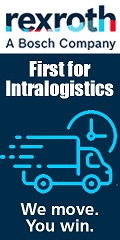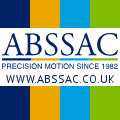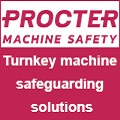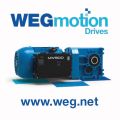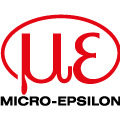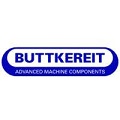
Posted to News on 8th Sep 2011, 12:35
Non-contact torque sensors test aircraft generators
TorqSense non-contact torque sensors from Sensor Technology have been incorporated in a fully automated system for testing aircraft generators.
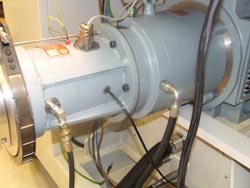
Aircraft servicing times are being reduced thanks to a new fully automatic generator testing station developed by MEL Aviation in Sudbury, Suffolk. A key element in the station is a TorqSense non-contact torque sensor, which can be deployed instantly for high-performance acceleration and deceleration tests on aircraft generators. Conventional sensors require the fitting and alignment of slip rings, which is an expensive process when considering the downtime costs of an airliner or military jet.
MEL Aviation is a full service and repair provider for the overhaul of aircraft systems and components. It also designs, manufactures and supports military aircraft systems and military ground-support equipment (GSE). Civil airline customers include British Airways, Virgin Atlantic, Monarch, BMI and Saudi Arabian airlines. On the military side it works with the UK MOD and BAE Systems on the Eurofighter and Nimrod programmes.
Gary Parker, one of the company's leading engineers, explains that the 24-hour service is supported by sophisticated customer care and quality assurance cultures, one-stop-shop capabilities and a passion for excellence: "For the most part we work with specifically designed technology and purpose-built test equipment. This breeds a culture of total responsibility for total reliability."
Readiness versus reliability
When a civil aircraft is not flying, it is not making money. When a military aircraft is on the ground, defences are weakened. But an unsafe aircraft in the air is a liability, so they are constantly rotating through ground servicing schedules to ensure their ongoing air and battle worthiness.
Every modern aircraft has at least one on-board generator to produce electrical power (most have two or more in a redundant configuration). These need to be ground tested regularly, typically every 500 to 1000 flying hours, hence the need for MEL's test station.
Parker states: "Our GTR station is in essence very simple. It uses a great big electric motor to turn the generator, rapidly accelerating and decelerating it up to 10,000rpm or more to simulate extreme flight conditions, such as in ground-hugging for radar evasion or an emergency descent of an airliner."
Various sets of instruments measure the electrical output, bearing performance and other parameters.
Automated test system
The innovative feature of the GTR is that it is fully automatic, the test steps being controlled and monitored by a PLC requiring the very minimum of human intervention - just selecting what type of test is to be performed from a menu, then pressing the start button. The software language for the GTR is a propriety SCADA package using Proficy iFix with dynamic communication links to a Telemecanique PL7 ladder logic embedded in a TSX premium programmable logic controller. All necessary functions are embedded in the Proficy iFix core construction architecture. The dynamic link is written in visual basic.
Parker continues: "TorqSense has the pivotal role of measuring the rotational speed - as a torque value - of the input shaft, which defines the simulated speed profile. It is the primary parameter of the test; if it is not monitored with 100 per cent accuracy throughout the whole test all data is invalid and precious time is wasted.
"It imparts no extra load onto the shaft, so calculations are simple. In short it is simple, robust, reliable and - dare I say it - idiot-proof. As such, it is ideal for the sort of demanding work we do."
MEL expects each test station to have a working life of at least 30 years and for the TorqSense transducers to perform for all this time. In both military and commercial flight operations, this is a typical expectation, with all investments being planned with long-term amortisation and reliability never compromised.
Contact Sensor Technology for more information about the TorqSense range of surface acoustic wave (SAW) torque sensors.
Apollo Park, Ironstone Lane
Wroxton
OX15 6AY
UNITED KINGDOM
+44 (0)1869 238400



